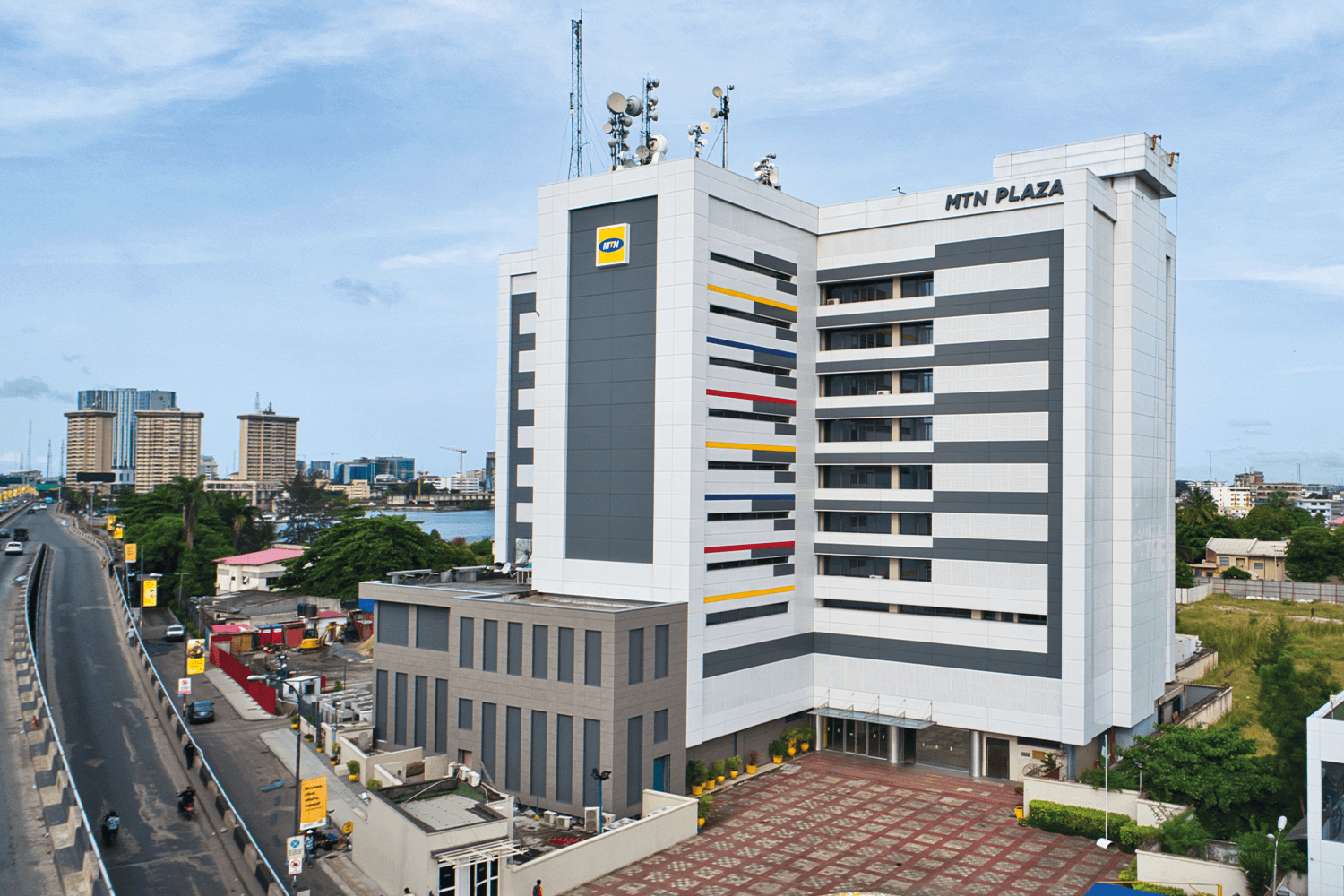|
|
|
|
|
|
|
|
in partnership
with
FLUTTERWAVE |
31.08.2020 |
|
|
|
|
|
Hi, welcome to TC Daily!
In today’s digest: more evidence on the “telecom fraud” in South Africa, Iroko limits focus on Africa and Zimbabwe is fast-tracking a social media bill.
Please take a moment to subscribe to our newsletter if this email was forwarded to you.
|
|
|
|
|
|
|
|
|
Get access to quality medical consultations from licensed Medical Doctors right from the comfort of your home, at any time and at the tip of your fingers.
Here’s a great opportunity for Medical Practitioners to earn more money from consultations. Learn more here.
|
|
|
|
|
|
|
|
|
|
Over the weekend, Hollywood actor, Chadwick Boseman, star of the Black Panther movie died from colon cancer. It was a painful loss. He battled with the ailment privately and still went on to feature in important Marvel Cinematic Universe franchise, acting in some of the biggest movies of the last decade. Rest in peace, Chadwick. Wakanda Forever.
|
|
|
|
|
|
|
Luno, the Naspers-backed cryptocurrency exchange platform, is on the expansion trail. Earlier in May, the company set up shop in Zambia and Uganda with plans to launch in Ghana and Kenya. And now, it has added the Oceania region to the mix with an expansion into Australia. Expansion into these countries would Luno’s operating markets to 12. By the end of 2019, the seven-year-old company which has raised $3m since 2015, operated seven offices across African, Asia, and Europe. Marius Reitz, Luno’s General Manager for Africa, says
the fintech has since crossed 5 million registered customers. He says the company is poised for more growth in the crypto-bullish Australian market where crypto regulation is relatively advanced.
|
|
|
|
|
|
|
Still on cryptocurrency exchanges, Yellow Card, a Nigerian startup, has raised at least $1.5 million to expand across Africa. Who are the investors? It’s a camaraderie of funds bullish on the future of cryptocurrency. Andreessen Horowitz, the iconic American VC firm, participated
in the round, alongside Polychain Capital, a crypto fund managing around $1 billion in assets, Celo, and a few other investors.
Launched in 2016 by Chris Maurice and Justin Poiroux. It now claims to process over $25 million in transaction volume and has over 20,000 merchants trading on its platform. Yellow Card operates in Nigeria, South Africa and Bostwana, but is now looking for new markets. It has its eyes on Kenya and Cameroon where it will become available by September 1. The company’s latest funding round will accelerate more expansion.
|
|
|
|
|
|
PAY-TV STRUGGLES IN NIGERIA
|
|
|
Here’s some nervy news.
Startimes, the Chinese Pay-TV company has been operating in the Nigerian market for over a decade. In 2008, the company entered into a joint venture with the Nigerian Television Authority (NTA), a state-owned enterprise. A 70:30 profit-sharing arrangement was reached. The Pay-TV service fully kicked off in 2010, offering Nigeria’s mass-market satellite television on a low-cost basis.
According to PwC, a Big Four consulting firm, Startimes has become the market leader in Nigeria’s
subscription TV market. According to PwC data, Pay-TV revenues in the country crossed $500 million in 2018. At the current growth rates, Pay-TV revenues will remain a significant part of all TV and Video earnings in Nigeria which is expected to surpass $900 million by 2023.
Multichoice rakes in more revenue thanks to its superior content offering, particularly high in demand sports coverage. But Startimes has more subscribers thanks to more affordable entry-level subscription plans.
Yet, after ten years Startimes Nigeria remains unprofitable.
Yakubu Muhammed, Director-General of NTA recently disclosed that the state-owned broadcaster has earned zero-profits from the joint venture with the Chinese company; implying that the service was not yet profitable.
“As an Executive Director in 2009 in NTA, not a single kobo was made from the joint venture with StarTimes, the same situation I met in 2016 when I returned as DG,” Muhammed told Nigerian lawmakers on August 25 during a committee session.
Startimes didn’t deny it, claiming “Pay-TV business is capital intensive” with “a long gestation period.” In 2018, the company said it had invested over $220 million in Nigeria since 2010.
“[All] gross earnings have been repeatedly ploughed back into [the business],” Startimes’ said in a statement
Nairametrics reported.
It doesn’t help too that Nigeria has an unstable foreign exchange environment that is affecting every business with dollar exposure.
|
|
|
|
|
|
|
|
IROKOTV DRIFTS AWAY FROM AFRICA
|
|
|
Unfortunately, Startimes’ profitability struggle is not unique.
Last week, IrokoTV, the
Nigerian streaming video-on-demand (SVOD) platform, disclosed that it has been bleeding cash with its focus on the African market. Its CEO, Jason Njoku disclosed that the company has lost at least $30 million over its lifetime. For a brief moment, the pandemic spurred a growth in Nigeria. But it tapered as quickly too. A combination of value-destroying devaluation, COVID-19 realities, and unfair government regulations are now forcing Iroko to shift its attention away from Africa.
Njoku said the company will now focus on its international business which contributes over 80% of its revenue. The company would end up saving over $250,000 monthly, putting on the path for profitability by 2021 according to Njoku. But it comes at a cost. Around 150 people will lose their jobs.
“If we only had the Africa market, then this post would [have been] RIP IROKOtv,” Jason wrote in a blog post.
It’s another sad day for any bullish view of African tech.
|
|
|
|
|
|
|
|
|
In Zimbabwe, the government said it will fast-track a Cyber Bill to control fake news and abuses on social media. The country’s Justice Minister, Ziyambi Ziyambi, said the bill is a “priority bill” to “deal
with [faslsehoods] soon.”
“According to Clause 164 of the proposed Cyber Bill,” he said, “anyone found guilty of communicating false information on the country or citizens can be jailed for five years.”
Zimbabwe is already facing political tension and it has increased despite the removal of long time president, Robert Mugabe in 2018. A cyber bill of this nature could lead to clampdowns on free speech and could be used to intimidate government critics.
|
|
|
|
|
|
|
Egypt-based food delivery business, Ordera has raised an undisclosed seed funding. The round was led by Alexandria Angels, Saudi-based VC Daal, and AUC Angels. The startup is reportedly witnessing an
exponential growth in food orders, no doubt spurred by the pandemic. It said it will use the new funding to grow its customer base, client network and expand to more cities.
|
|
|
|
|
|
|
More damning evidence shows South Africa’s Vodacom is suffering “mass scale” prepaid airtime theft. The discovery was first made last week by MyBroadband. According to the
publication, this problem was not unique to Vodacom with other telco subscribers reporting similar incidences of airtime theft.
For telecom subscribers, the theft happens in a familiar way in the form of auto-subscriptions— where they get signed up and billed for paid value-added services without their consent. On discovery, subscribers typically cancel the VAS service or opt-out of auto-renewal. MyBroadband’s Rudolph Muller explained that VAS providers, in the form of wireless application service providers (WASPs) and content subscription services, “steal” billions from
mobile users each year.
In his new article, after speaking to an anonymous insider, Muller writes that “there is widespread fraud and airtime theft on Vodacom’s network.” Muller explains that the theft affects both new and old SIMs, alleging that the telco is aware of this fraud “but failed to act decisively.”
|
|
|
|
|
|
|
Another Lagos?
When Lagos, Africa’s largest city, banned motorcycles, one of those affected was Adetayo Bamiduro and his bike-hailing startup, MAX.
“Our network was impacted in Lagos,” Bamiduro told TechCabal. “especially our drivers who relied more on the transport side of things,” he added.
“Some of our drivers moved to the non-restricted areas [in Lagos]. The volume of business wasn’t as much in those areas.”
|
|
|
|
|
MAX had 2,200 employees and had created 72,000 indirect jobs as at the time of the ban. Quite a number of these were in its motorcycle business.
But MAX has found a new home. This time, outside Lagos. The startup signed a transport deal with Ekiti State, South-West Nigeria. The deal will see MAX digitize the operations of commercial motorcycles (aka okadas) and kekes (auto-rickshaws).
Over the past few months, Ekiti has been positioning itself to become Nigeria’s innovation hub. This is coming at a time when entrepreneurs and innovators are becoming distraught with Lagos.
[TC Insights: Lagos Misses]
Ekiti was the first Nigerian state to crash right of way fees to make it cheaper to lay broadband cables. It is looking to increase internet penetration from 16% to 90%. Already, it has signed a $12 million deal with O’odua InfraCo to lay 606km of fibre.The continent’s largest telco has reportedly requested approval to lay 160km of fibre across the state.
At the beginning of the year, Ekiti partnered with one of the country’s most active VCs, Ventures Platform to create an entrepreneurship and innovation programme called Digital Ekiti. In addition to its latest deal with MAX, Ekiti State is presenting itself as a strong alternative to Lagos. It has set a goal to greatly improve the ease of doing business in the state.
The key question is whether the state will see these reforms through and remain open for business.
If you are a founder in Africa, please fill our
investor list here to let us know who gave you your first check. Get TechCabal’s reports and send
us your custom research requests here.
|
|
|
|
|
|
|
|
|
|
|
|
|
|
|
We’ll be back tomorrow
– Abubakar
|
|
|
|
|
Share TC Daily with your friends!
|
|
|
|
|
|
|
Copyright © 2020 Big Cabal Media,
All rights reserved.
You are receiving this email because
you signed up on TechCabal.com
Our mailing address is:
Big Cabal Media
18, Nnobi Street, Animashaun, Surulere, Lagos
Surulere 100001
Nigeria
Add us to your address book
Want to change how you receive these emails? You can
|
|
|
|
|








